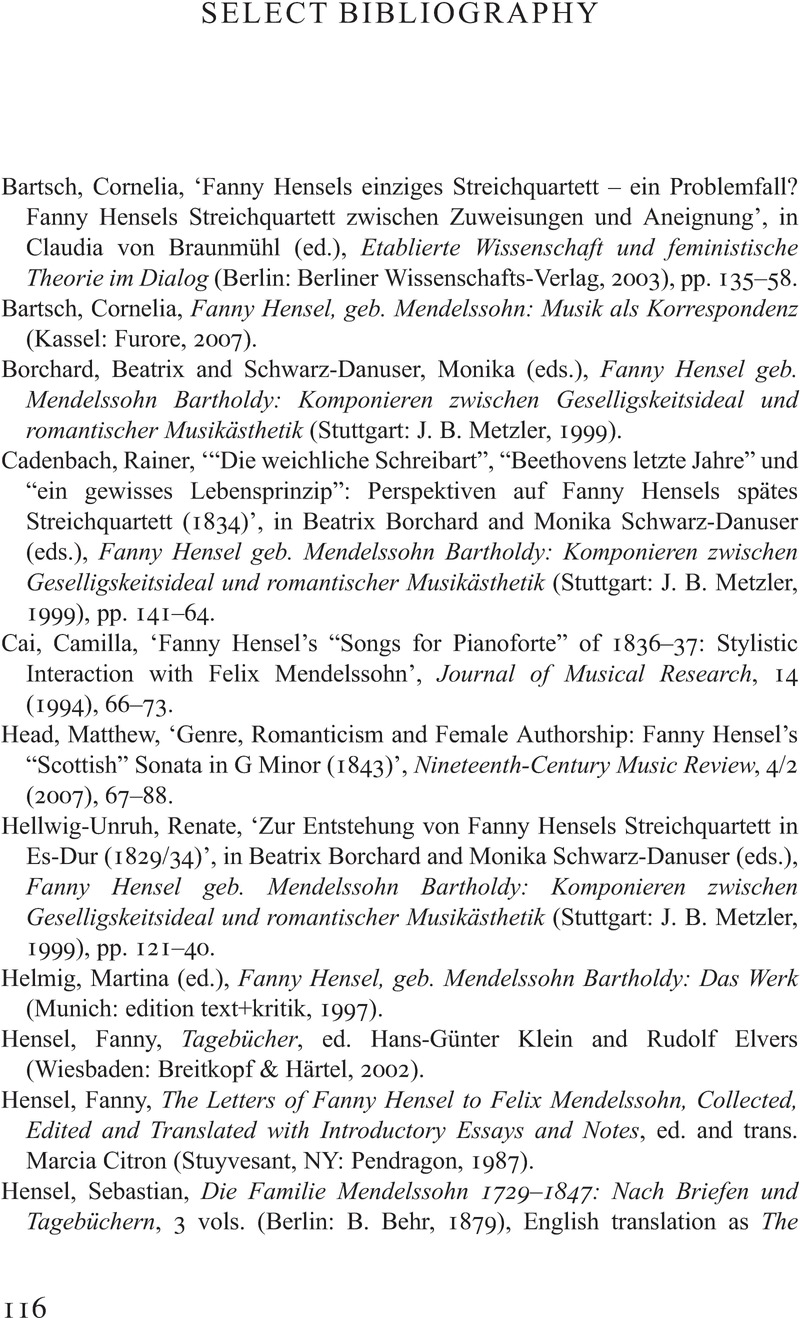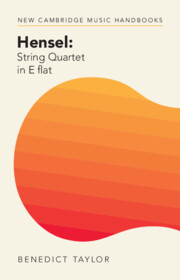Book contents
- Hensel: String Quartet in E flat
- New Cambridge Music Handbooks
- Hensel: String Quartet in E flat
- Copyright page
- Contents
- Figures
- Tables
- Musical Examples
- Preface
- 1 Introduction
- 2 Background
- 3 Genesis and Private Reception
- 4 First Movement
- 5 Second Movement
- 6 Third Movement
- 7 Finale
- 8 Responding to the Quartet
- Select Bibliography
- Index
- References
Select Bibliography
Published online by Cambridge University Press: 07 December 2023
- Hensel: String Quartet in E flat
- New Cambridge Music Handbooks
- Hensel: String Quartet in E flat
- Copyright page
- Contents
- Figures
- Tables
- Musical Examples
- Preface
- 1 Introduction
- 2 Background
- 3 Genesis and Private Reception
- 4 First Movement
- 5 Second Movement
- 6 Third Movement
- 7 Finale
- 8 Responding to the Quartet
- Select Bibliography
- Index
- References
Summary

- Type
- Chapter
- Information
- Hensel: String Quartet in E flat , pp. 116 - 118Publisher: Cambridge University PressPrint publication year: 2023

